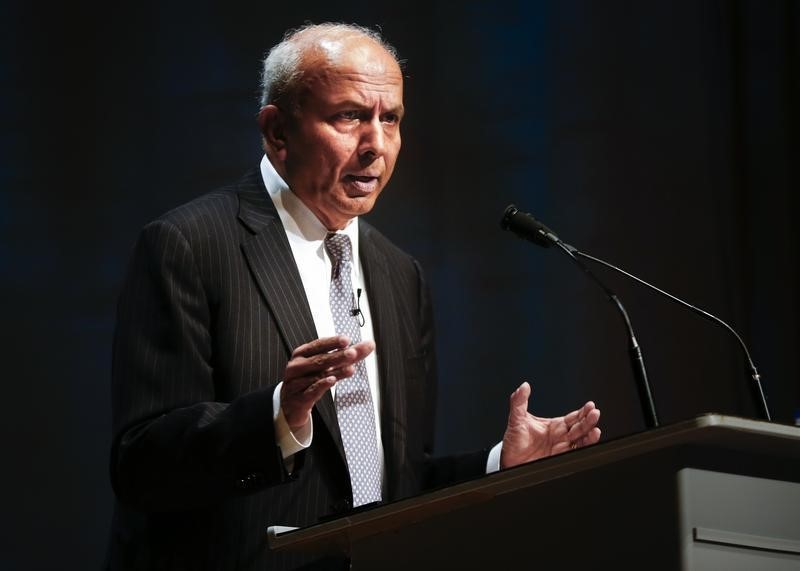By Euan Rocha
TORONTO (Reuters) - Fairfax Financial Holdings (TO:FFH) has called a special meeting of its shareholders to decide on a change that will preserve Prem Watsa's voting stake in the firm he has built and run for more than three decades.
Watsa, a famed contrarian investor often dubbed "Canada's Warren Buffett," has grown Fairfax's common shareholders' equity from around $8 million in 1985 to $8.8 billion (£5.6 billion) today.
Fairfax, a holding and investment firm, said late on Friday the move was aimed at preventing a takeover and preserving its unique culture. The company has grown through acquisitions and prides itself on being able to attract good partners and management teams by following a decentralized approach and letting its subsidiaries run themselves and grow independently.
Its share price has soared from below C$5 in 1985 to over $625 on the TSX, as investors have also applauded its strategy to focus on long-term growth, rather than short-term profits.
The firm has a dual class share structure, but the founding shareholders' initial voting control of over 85 percent has come down to 41.8 percent as the company has issued more subordinate voting shares.
Fairfax said the move would allow future share issuance to finance growth without further diluting voting control. Watsa has pledged never to sell his voting shares in Fairfax, making it clear that investors should not invest in the hopes of a takeover premium.
Fairfax said its plan, which had the unanimous support of the board, also included safeguards put in place to protect against criticisms sometimes made of dual class structure.
The multiple voting shares will continue to have the same value as subordinated voting shares. Watsa and his family cannot sell the multiple voting shares, or get any premium in the case of a collapse of the structure.
The family's stake in the company, which stands at 43 percent after accounting for all shares owned, can never top 49.9 percent. Watsa, who gets no bonus, equity incentives, nor pension, will remain CEO until 2025 and have his salary frozen at C$600,000 ($487,012) as it has been since 2000.
The shareholder vote on July 21 will require the backing of the majority of the minority shareholders, excluding Watsa and certain related parties.

For details on the vote structure: http://bit.ly/1BakKew